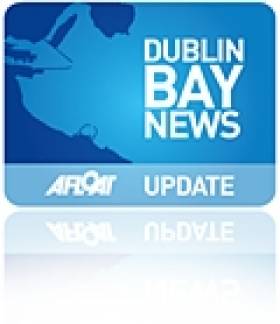Displaying items by tag: Dubin Bay
Remedial Works Proposed for Coliemore Pier on Dublin Bay
Dún Laoghaire-Rathdown County Council has applied to An Bord Pleanála to carry out remedial works for a pier walkway in Coliemore Harbour which is a Protected Structure, located in Dalkey, on the southern shore of Dublin Bay.
The proposed development will comprise the mobilisation and site set-up, including access to a viewing platform and obstruction removal (bollards etc); removal of the temporary walkway to allow access for grouting.
The works include the installation of up to 16 rock anchors from the suspended platform via a crane located on the viewing platform and a resurfacing of the existing walkway.
As Afloat reported previously, €75,000 of funding was received for Coliemore Harbour repairs in 2021.
More on the DLRCoCo application is here
1720 Man Overboard Drama in first Race of DBSC Spring Chicken Series
Dublin Bay Sailing Club's Spring Chicken series got off to a dramatic start on Sunday when a 1720 sportsboat was rescued from the surf in the north-west of Dublin Bay. 20–knot winds and big seas made for a testing first race for the 46–boat fleet.
A 1720 sportsboat competitor was involved in a man overboard incident that ended up with the yacht also getting into difficulties. The Dun Laoghaire lifeboat was standing by to assist but the crewman was recovered from the water and the boat towed out of the surf by a DBSC committee vessel without the need for the lifeboat. A DBSC spokesman said the club was very grateful for the RNLI assistance offered.
First race results will be issued later in the week
National Yacht Club Hosts Offshore Sailing Talk
Sailing offshore? The National Yacht Club is staging an 'Introduction to Offshore Racing' evening next Saturday 7th April 2011 at 19.30 and a line up of speakers inlcudes Maurice 'Prof' O’Connell on winning the 2009 Dun Laoghaire to Dingle Race. Mick Liddy on how to prepare for offshore sailing. Former National Yacht Club commodore Peter Ryan will give tips on ISORA racing in the Irish Sea.
Whether you are a Round Ireland expert or an offshore newbie the Dun Laoghaire club stresses it is an informal night but a 'unique one' both for offshore sailing fans and those who might be considering going offshore for the first time this season.
All the latest ISORA News
All the latest ICRA News
All the latest La Solitaire du Figaro News
All the latest Round Ireland News






























































